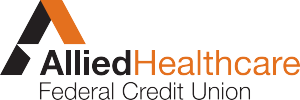Scram, scams!

The sad reality is that some people will stop at nothing to try to separate others from their money. Financial fraud and costly scams are a part of life and they are on the rise. In the U.S., romance scams—fake identities messaging you with overtures of love and affection (as long as you share your bank account, of course)—increased 80% in 2021, costing Americans a record $547 million. And that’s just one kind of digital banking fraud.
Allied Healthcare Federal Credit Union is committed to your financial healthcare for life, and that means arming you with the defenses to protect yourself against online scams. We all have dozens, if not hundreds of online interactions every day, the overwhelming majority of which are not criminal, but the fraudsters are hoping that you’ll let your guard down during at least one of them. We want to help you avoid that.
Spoofing is when fraud criminals mask their phone number with a number you recognize. For example, you may receive a call from a number that may be the same as an Allied Healthcare Federal Credit Union MemberCare Center phone number, but it’s possible that it’s not actually AHFCU calling. Fraudsters hijack legitimate numbers and use them to try and dupe you into giving away personal financial information. If you have any doubts while you’re on the phone, hang up and call us directly at 562.933.0370. That’s how you know for sure you’re speaking to an AHFCU representative.
Further, Allied will never call you to ask you to log out of your digital banking or to avoid digital banking for a specific period of time (fraud criminals do this to cover their actions so you won’t see them accessing your account), nor will we ever ask you for a verification code that goes to your phone or email when a password or other important information is changed in your digital banking.
Last, there are times when we may need personal information from you but Allied Healthcare Federal Credit Union will never call you out of the blue to ask for information like your Social Security number, date of birth, debit card PIN, verification code sent via text message or address. We will not call or text you asking to call you back at a new number, download a file or click or type a URL. If an “Allied” representative calls you requesting any of these items, that’s one way to tell you’re being spoofed.
Many of these attacks are sophisticated so if anyone, pretending to be Allied or otherwise, calls and asks you for information that could put someone closer to accessing your finances, verify the legitimacy before you respond with your info.
General best practices for protecting yourself online start with being diligent about what you put online. Social media and other forums can be great resources for companionship and information but they also open yourself to being targeted. Know your social media account privacy settings and consider making them as strict as you’re comfortable with.
Use different passwords for different accounts and try to change them frequently. This is a hassle and requires dedication but it’s less painful than being attacked by a fraud criminal.
Update the applications on your phone and computer on a regular cadence or turn on auto-updates. This is a simple task but using the latest versions of your online tools is a great way to avoid exploitation.
We are bombarded with messages across all kinds of platforms and its best to bring a little skepticism to every unsolicited email, text or phone call you receive. If someone you’ve never heard of has an exciting business opportunity for you or promises you everlasting love, think twice before engaging. If it seems too good to be true, assume it is.



